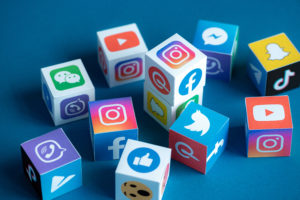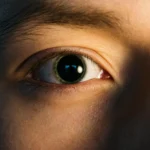Gone are the days when it took hours or even days for information to travel. In today’s society, news, whether good or bad, travels fast. This means positivity and negativity travel with equal speed and have the potential to levy a significant impact. Today, the social media-heavy climate links people globally in ways never before possible. There are indeed positive elements of social media; however, there are negative and challenging aspects as well. Unfortunately, the harmful components can have a highly toxic effect on people of all ages, in some cases leading to detrimental struggles with mental health and addiction.
What Are the Common Forms of Social Media?
Social media is loosely considered a collection of apps on our smartphones, computers, and tablets that are used to communicate and share photos or videos with family and friends. Social media includes networks such as Facebook, Twitter, Instagram, and a host of others. The broad definition of social media consists of all of the internet-based technology that helps facilitate the sharing and exchange of ideas, thoughts, and information across virtual networks and communities. Regardless of platform, social media sites and apps give their users access to instant electronic communication both with those who are nearby and those on opposite sides of the world.
According to the Pew Research Center, over three billion people use social media in some form, and more than ninety percent of people between the ages of eighteen and twenty-nine use at least one type of social media daily. Unfortunately, there are many questions surrounding excessive social media use and how consistent exposure to both its positive and negative aspects may ultimately harm the mental health of frequent users. In some cases, the detrimental effects of social media can lead to new or worsening mental health and addiction-related struggles.
What Are the Effects of Social Media on Mental Health?
Social media platforms are intentionally designed in such a way as to hold the user’s attention for as long as possible. For some, excessive screen time, even if only browsing on Facebook or swiping on Instagram posts, can lead to unhealthy emotions, including envy, inadequacy, fear, anger, hate, and dissatisfaction with one’s course in life. Some studies also suggest that excessive internet use and screen time associated with social media can lead to mental health symptoms related to depression, anxiety, attention-deficit hyperactivity disorder, and insomnia.
Social Media can also trigger feelings of isolation and loneliness. Many social media apps run on reinforcement mechanisms such as “swipes,” “likes,” and “comments.” The emotions that can be triggered by someone not liking your post or, worse, posting negative or hurtful comments can trigger powerful negative emotions.
It is also important to note that addiction and social media are often related. Research has shown that excessive social media use can create a stimulation pattern in the brain similar to that of other addictive behaviors. As a result, the brain will begin to react to social media in the same way it reacts to other “reward” systems associated with addictive behaviors such as drinking, using drugs, or gambling. When someone experiences a positive interaction on social media, the brain releases dopamine. This rush of dopamine increases feelings of joy and pleasure. Some studies have noted that social media addictions are often the result of (or worsened by) co-occurring disorders such as chronic stress, depression, trauma, or anxiety.
Get Help Today With Addiction and Mental Health
If you are concerned about your or a loved one’s social media use and how it may be affecting mental health, it is ok to seek support and guidance. Reach out to our caring and compassionate team today to learn more about how therapy programs may help you learn more about the underlying concerns that may lead to social media addictions and new or worsening mental health symptoms.




